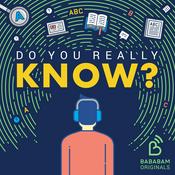The Bible Project Daily Podcast
Pastor Jeremy R McCandless

Latest episode
1271 episodes
- Send a text
In Philippians chapter 1, the Apostle Paul at one point says that he was appointed for the defence of the gospel.
In Jude verse 3, Jude says that all Christians, not just those in leadership, are to contend earnestly for the faith.
Now what is all that about? And how do you go about doing that? How does one defend the gospel or contend for the faith? Also where are you supposed to do this? Does this mean that you are to defend the gospel from attack by those who are outside the realm of Christianity? Or does it mean that you are to defend the gospel from within the Christian community? Or both…. And when, and how are you supposed to do this?
Well, there's at least one passage of Scripture in the New Testament that gives us an illustration of the Apostle Paul himself doing that. And while I do not think that passage answers all of the questions or covers every situation, I do think it gives us some helpful hints on how we are to respond and where appropriate, defend the gospel and even contend for the faith.
That incident is recorded for us in Galatians chapter 2….
Support the show
Follow and support me on Patreon.
Jeremy McCandless | Creating Podcasts and Bible Study Resources | Patreon
To receive my weekly newsletter and keep up to date with all five of my podcasts, subscribe at:
Jeremy McCandless | Substack
Check out my other Podcasts.
The Bible Project: https://thebibleproject.buzzsprout.com
History of the Christian Church: https://thehistoryofthechristianchurch.buzzsprout.com
The L.I.F.E. Podcast: (Philosophy and current trends in the Arts and Entertainment Podcast).
https://the-living-in-faith-everyday-podcast.buzzsprout.com
The Renewed Mind Podcast. My Psychology and Mental Health Podcast:
https://www.buzzsprout.com/2568891
The Classic Literature Podcast:
https://www.buzzsprout.com/2568906
To visit my Author page on Amazon and view my entire back catalogue of books on both Amazon and Kindle and now also on Audible, Visit:
Amazon.com: Jeremy R Mccandless: books, biography, latest update - Send a text
To receive my weekly newsletter and keep up to date with all five of my podcasts, subscribe at:
Jeremy McCandless | Substack
Episode Notes:
Welcome back, friends. It’s great to have you with me again as we continue our time studying Paul’s letter to the Galatians. In Galatians 2:1–10, Paul takes us behind the scenes of one of the most important meetings in early church history. This is the moment when the apostles — the pillars of the church — gather in Jerusalem to answer a question that would shape the future of Christianity:
Is the gospel really enough?
So, let’s step into this extraordinary moment when the early church stood shoulder to shoulder and affirmed the freedom we now enjoy in Christ.
Let’s begin….
Support the show
Follow and support me on Patreon.
Jeremy McCandless | Creating Podcasts and Bible Study Resources | Patreon
To receive my weekly newsletter and keep up to date with all five of my podcasts, subscribe at:
Jeremy McCandless | Substack
Check out my other Podcasts.
The Bible Project: https://thebibleproject.buzzsprout.com
History of the Christian Church: https://thehistoryofthechristianchurch.buzzsprout.com
The L.I.F.E. Podcast: (Philosophy and current trends in the Arts and Entertainment Podcast).
https://the-living-in-faith-everyday-podcast.buzzsprout.com
The Renewed Mind Podcast. My Psychology and Mental Health Podcast:
https://www.buzzsprout.com/2568891
The Classic Literature Podcast:
https://www.buzzsprout.com/2568906
To visit my Author page on Amazon and view my entire back catalogue of books on both Amazon and Kindle and now also on Audible, Visit:
Amazon.com: Jeremy R Mccandless: books, biography, latest update - Send a text
To receive my weekly newsletter and keep up to date with all five of my podcasts, subscribe at:
Jeremy McCandless | Substack
Last time, Paul grabbed us by the shoulders and said, “Don’t you dare move from the gospel!” — and if you felt that, you’re not alone. Paul wasn’t whispering, was he?
Today, though, the tone shifts. Not because Paul has calmed down — he hasn’t — but because he’s about to tell a story. His story. And it’s dramatic, it’s surprising, and it’s wonderfully encouraging.
Because in today's passage, Paul wants us to know something vital: The gospel he preached didn’t come to him from a Rabbi or via a religious committee, or some clever theological insight; it came from God Himself. And the proof? His life was turned upside down in a way no human could have orchestrated.
So today we are going to explore: How Paul received the gospel, why he didn’t need human approval to preach it, and how his past has now become a platform to demonstrate God’s grace. It also tells us why transformation matters in our story as well. And also, along the way, we’ll see that God has a remarkable habit of choosing the least likely people to carry His message.
Which means if you feel unqualified, unprepared, or just a bit of a mess, then this should be wonderfully reassuring.
Support the show
Follow and support me on Patreon.
Jeremy McCandless | Creating Podcasts and Bible Study Resources | Patreon
To receive my weekly newsletter and keep up to date with all five of my podcasts, subscribe at:
Jeremy McCandless | Substack
Check out my other Podcasts.
The Bible Project: https://thebibleproject.buzzsprout.com
History of the Christian Church: https://thehistoryofthechristianchurch.buzzsprout.com
The L.I.F.E. Podcast: (Philosophy and current trends in the Arts and Entertainment Podcast).
https://the-living-in-faith-everyday-podcast.buzzsprout.com
The Renewed Mind Podcast. My Psychology and Mental Health Podcast:
https://www.buzzsprout.com/2568891
The Classic Literature Podcast:
https://www.buzzsprout.com/2568906
To visit my Author page on Amazon and view my entire back catalogue of books on both Amazon and Kindle and now also on Audible, Visit:
Amazon.com: Jeremy R Mccandless: books, biography, latest update - Send a text
Welcome back, friends. Today, we step into one of the most startling moments in all of Paul’s writings. If the opening verses of Galatians introduced us to the apostle’s authority and the beauty of the gospel, then verses 6–10 teach us the reason for the urgency felt in this entire letter.
“I am astonished that you are so quickly deserting the one who called you…”
This is not irritation. This is not impatience. This is the voice of a spiritual father watching his children wander toward danger. And in these verses, Paul will confront a reality that is as relevant today as it was in the first century: The fact that the gospel can be distorted, and believers can drift away from the truth.
Galatians 1:6–10 is Paul grabbing the church by the metaphorical shoulders and shaking them and saying, “Don’t move away from the gospel.” “Don’t trade grace for performance.” And don’t let anyone redefine what Christ has accomplished.”
To receive my weekly newsletter with updates on all five of my podcasts: subscribe on Substack.
Jeremy McCandless | Substack
Support the show
Follow and support me on Patreon.
Jeremy McCandless | Creating Podcasts and Bible Study Resources | Patreon
To receive my weekly newsletter and keep up to date with all five of my podcasts, subscribe at:
Jeremy McCandless | Substack
Check out my other Podcasts.
The Bible Project: https://thebibleproject.buzzsprout.com
History of the Christian Church: https://thehistoryofthechristianchurch.buzzsprout.com
The L.I.F.E. Podcast: (Philosophy and current trends in the Arts and Entertainment Podcast).
https://the-living-in-faith-everyday-podcast.buzzsprout.com
The Renewed Mind Podcast. My Psychology and Mental Health Podcast:
https://www.buzzsprout.com/2568891
The Classic Literature Podcast:
https://www.buzzsprout.com/2568906
To visit my Author page on Amazon and view my entire back catalogue of books on both Amazon and Kindle and now also on Audible, Visit:
Amazon.com: Jeremy R Mccandless: books, biography, latest update - Send a text
Have you ever been told you must follow some sort of rule to be right with God?
For some, this means observing the Sabbath, for others, it’s vegetarianism or keeping Old Testament feasts or adhering to a strict Calendar of events and Christian practices. Such beliefs are often deeply held, but their dogmatic implementation by some can be both imprisoning and confusing.
If God gave the law, does ignoring them mean we’re lawless, or are we free to act as we please? To explore this, we'll study Galatians—a book dealing directly with whether rule-keeping is necessary for salvation….
Support the show
Follow and support me on Patreon.
Jeremy McCandless | Creating Podcasts and Bible Study Resources | Patreon
To receive my weekly newsletter and keep up to date with all five of my podcasts, subscribe at:
Jeremy McCandless | Substack
Check out my other Podcasts.
The Bible Project: https://thebibleproject.buzzsprout.com
History of the Christian Church: https://thehistoryofthechristianchurch.buzzsprout.com
The L.I.F.E. Podcast: (Philosophy and current trends in the Arts and Entertainment Podcast).
https://the-living-in-faith-everyday-podcast.buzzsprout.com
The Renewed Mind Podcast. My Psychology and Mental Health Podcast:
https://www.buzzsprout.com/2568891
The Classic Literature Podcast:
https://www.buzzsprout.com/2568906
To visit my Author page on Amazon and view my entire back catalogue of books on both Amazon and Kindle and now also on Audible, Visit:
Amazon.com: Jeremy R Mccandless: books, biography, latest update
More Education podcasts
Trending Education podcasts
About The Bible Project Daily Podcast
Why not make Studying the Bible part of the rhythm of your daily life. The Bible Project Daily Podcast is a 10 year plan to study through the entire Bible, both Old and New Testament, chapter by chapter, verse by verse. Season one is a short overview of each of the sixty-six books of the Bible. Season two launched our expositional journey through the whole Bible beginning with the book of Genesis. Thereafter each season take a New Testament/Old Testament alternatively until the project is complete. (God willing) Why not join me on this exciting journey as we study the whole Bible together from Genesis to Revelation.
Podcast websiteListen to The Bible Project Daily Podcast, The Sinead Says Podcast and many other podcasts from around the world with the radio.net app

Get the free radio.net app
- Stations and podcasts to bookmark
- Stream via Wi-Fi or Bluetooth
- Supports Carplay & Android Auto
- Many other app features
Get the free radio.net app
- Stations and podcasts to bookmark
- Stream via Wi-Fi or Bluetooth
- Supports Carplay & Android Auto
- Many other app features


The Bible Project Daily Podcast
Scan code,
download the app,
start listening.
download the app,
start listening.






































